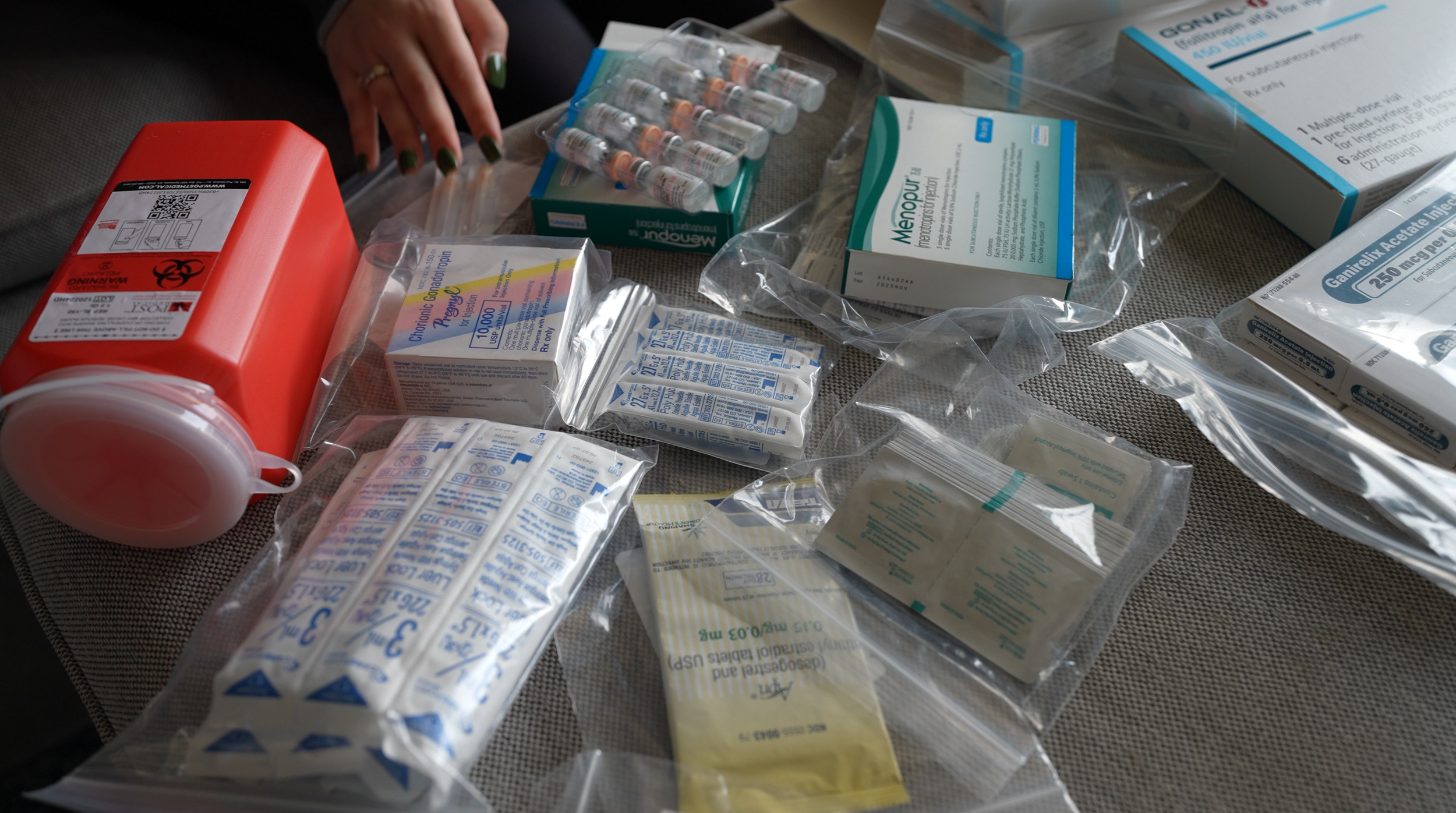A Guide to Egg Donation and Fertility Medications
This guide covers the most common medications you may be prescribed over the course your egg retrieval journey and how to take, manage, and track them.
Starting an egg donation cycle or fertility treatment can feel overwhelming at first, especially when it comes to the medications involved. The list of names, injections, and schedules may look intimidating, but with the right guidance, it becomes a manageable and empowering part of the whole process.
At The Genesis Group, we believe that informed donors and patients feel more confident, prepared, and supported. This guide walks you through the most common medications used in egg donation, IVF, and egg freezing.
Our goal is to help you feel at ease as you take these steps toward helping others build their families, or preserving your own fertility for the future.
Why Do You Take Fertility Medications?
Fertility medications work with your natural cycle to achieve a specific goal: producing multiple mature eggs that can be retrieved at once. While your body typically grows and releases just one egg each month during ovulation, these medications “stimulate” the ovaries to grow and mature several at the same time. This gives doctors more mature eggs to collect during the retrieval, improving the chances of a successful outcome — whether those eggs are being donated, frozen, or used for IVF.
The Most Common Medications
Here’s a breakdown of the medications most often prescribed during an egg donation or egg freezing cycle. Each one has a specific role to play, and your doctor will tailor your exact protocol to your body and medical history.
1. Birth Control Pills (Oral Contraceptives)
Type: Oral hormone pill
Use Case: To regulate and synchronize your cycle before stimulation begins. This ensures that your ovaries are “in sync” with the treatment calendar.
How to Take: One pill by mouth daily, usually for 1-4 weeks before stimulation starts.
Timing/Duration: Used at the very beginning of the process to prepare your body.
2. FSH and LH Medications: Gonal-F, Follistim, Menopur
Type: Injectable hormones (FSH and LH)
Use Case: To stimulate your ovaries to grow multiple eggs in one cycle, instead of just one.
How to Take: Subcutaneous injections (tiny needles, usually in the lower abdomen).
Timing/Duration: Daily self-injections for about 8-12 days. You’ll come into the clinic for monitoring during this time so your doctor can analyze your body’s response to the medications.
3. GnRH Antagonists (Ganirelix, Cetrotide)
Type: Injectable medication
Use Case: To prevent premature ovulation (so your body doesn’t release eggs before retrieval).
How to Take: Subcutaneous injections, often alongside FSH and LH medications.
Timing/Duration: Usually started a few days into stimulation and taken until the final trigger shot.
4. Trigger Shot (hCG or Lupron)
Type: Injectable hormone (hCG or GnRH agonist)
Use Case: To finish maturing the eggs and prepare them for retrieval. This is what signals to your ovaries that it’s time to release the eggs.
How to Take: One carefully timed injection, administered subcutaneously or intramuscularly depending on the medication.
Timing/Duration: Given about 24-36 hours before your scheduled retrieval procedure.
5. Antibiotics (Doxycycline, others)
Type: Oral medication
Use Case: To reduce the risk of infection during or after the retrieval procedure.
How to Take: By mouth, typically with water and sometimes with food.
Timing/Duration: A short course, usually starting the after retrieval and lasting 3-5 days.
6. Pain Relief / Sedation Medications (During Retrieval)
The retrieval itself is a minimally invasive procedure, usually lasting around 20 minutes under light sedation. Learn more about the specifics of your egg retrieval procedure here.
Type: Oral or IV medications (depending on procedure)
Use Case: To keep you comfortable before, during, and after the retrieval.
How to Take: Provided at the clinic under medical supervision.
Timing/Duration: Used only on retrieval day.
Tips for Managing Medications
Stay organized. Your clinic will design a comprehensive calendar for medications and monitoring leading up to the egg retrieval. Use the calendar, a pill box, or app to keep track of what you’ve taken and when.
Set reminders. Timing is critical, especially for injections like the trigger shot.
Ask for support. Nurses will teach you how to give injections and are available for questions. Certain medications require mixing and attention to dosage, while others, like the Follistim Pen and AQ Cartridge, are designed to be quick and user-friendly.
Don’t be afraid to call. If something doesn’t feel right, your agency and medical team are there to help.
Your Fertility Journey Deserves Full Support
Egg donation and fertility treatments involve a structured medication plan, but you won’t be navigating it alone. Your doctor and The Genesis Group will guide you step by step, adjusting your protocol to your needs.
For our egg donors, these medications are a temporary part of the journey. This final step takes a couple weeks of focus, yet contains the power to make a lifelong difference for a family in need.
If you’re considering egg donation or fertility preservation, understanding the medication process is the first step toward feeling confident, prepared, and empowered in your decision. Apply now and start your egg donation journey with your premier fertility agency, The Genesis Group.

